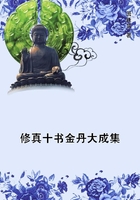HOW ROME BECAME THE CENTRE OF THE CHRISTIAN WORLD
THE average intelligent Roman who lived under the Empire had taken very little interest in the gods of his fathers.
A few times a year he went to the temple, but merely as a matter of custom. He looked on patiently when the people celebrated a religious festival with a solemn procession. But he regarded the worship of Jupiter and Minerva and Neptune as something rather childish, a survival from the crude days of the early republic and not a fit subject of study for a man who had mastered the works of the Stoics and the Epicureans and the other great philosophers of Athens.
This attitude made the Roman a very tolerant man. The government insisted that all people, Romans, foreigners, Greeks, Babylonians, Jews, should pay a certain outward respect to the image of the Emperor which was supposed to stand in every temple, just as a picture of the President of the United States is apt to hang in an American Post Office. But this was a formality without any deeper meaning. Generally speaking everybody could honour, revere and adore whatever gods he pleased, and as a result, Rome was filled with all sorts of queer little temples and synagogues, dedicated to the worship of Egyptian and African and Asiatic divinities.
When the first disciples of Jesus reached Rome and began to preach their new doctrine of a universal brotherhood of man, nobody objected. The man in the street stopped and listened Rome, the capital of the world, had always been full of wandering preachers, each proclaiming his own "mystery." Most of the self-appointed priests appealed to the senses--promised golden rewards and endless pleasure to the followers of their own particular god. Soon the crowd in the street noticed that the so-called Christians (the followers of the Christ or "anointed") spoke a very different language. They did not appear to be impressed by great riches or a noble position.
They extolled the beauties of poverty and humility and meekness.
These were not exactly the virtues which had made Rome the mistress of the world. It was rather interesting to listen to a "mystery" which told people in the hey-day of their glory that their worldly success could not possibly bring them lasting happiness.
Besides, the preachers of the Christian mystery told dreadful stories of the fate that awaited those who refused to listen to the words of the true God. It was never wise to take chances.
Of course the old Roman gods still existed, but were they strong enough to protect their friends against the powers of this new deity who had been brought to Europe from distant Asia? People began to have doubts. They returned to listen to further explanations of the new creed. After a while they began to meet the men and women who preached the words of Jesus. They found them very different from the average Roman priests. They were all dreadfully poor. They were kind to slaves and to animals. They did not try to gain riches, but gave away whatever they had. The example of their unselfish lives forced many Romans to forsake the old religion.
They joined the small communities of Christians who met in the back rooms of private houses or somewhere in an open field, and the temples were deserted.
This went on year after year and the number of Christians continued to increase. Presbyters or priests (the original Greek meant "elder") were elected to guard the interests of the small churches. A bishop was made the head of all the communities within a single province. Peter, who had fol- lowed Paul to Rome, was the first Bishop of Rome. In due time his successors (who were addressed as Father or Papa) came to be known as Popes.
The church became a powerful institution within the Empire.
The Christian doctrines appealed to those who despaired of this world. They also attracted many strong men who found it impossible to make a career under the Imperial gov- ernment, but who could exercise their gifts of leadership among the humble followers of the Nazarene teacher. At last the state was obliged to take notice. The Roman Empire (I have said this before) was tolerant through indifference. It allowed everybody to seek salvation after his or her own fashion. But it insisted that the different sects keep the peace among themselves and obey the wise rule of "live and let live."
The Christian communities however, refused to practice any sort of tolerance. They publicly declared that their God, and their God alone, was the true ruler of Heaven and Earth, and that all other gods were imposters. This seemed unfair to the other sects and the police discouraged such utterances.
The Christians persisted.
Soon there were further difficulties. The Christians refused to go through the formalities of paying homage to the emperor.
They refused to appear when they were called upon to join the army. The Roman magistrates threatened to punish them. The Christians answered that this miserable world was only the ante-room to a very pleasant Heaven and that they were more than willing to suffer death for their principles. The Romans, puzzled by such conduct, sometimes killed the offenders, but more often they did not. There was a certain amount of lynching during the earliest years of the church, but this was the work of that part of the mob which accused their meek Christian neighbours of every conceivable crime, (such as slaughtering and eating babies, bringing about sickness and pestilence, betraying the country in times of danger) because it was a harmless sport and devoid of danger, as the Christians refused to fight back.
Meanwhile, Rome continued to be invaded by the Barbarians and when her armies failed, Christian missionaries went forth to preach their gospel of peace to the wild Teutons.















